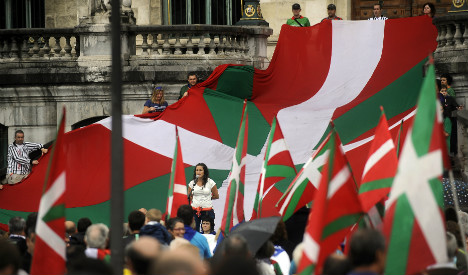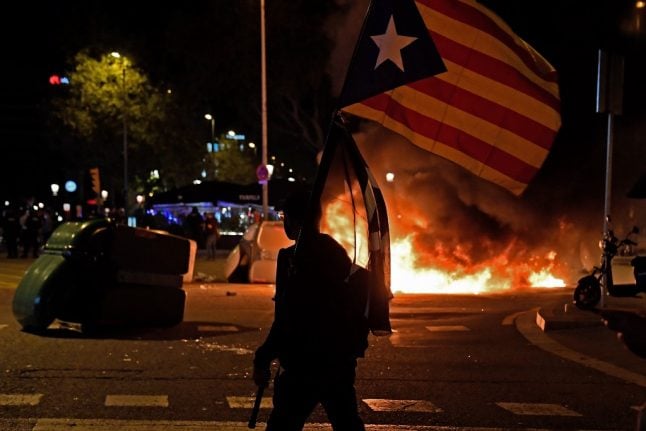When Elena and May were growing up, you didn't talk about the separatist group Eta and the decades of killings in their native Basque country. Now they are shouting and crying about it.
Actors in their forties, they are at a high school, playing out for their young audience the dramatised scenes of hatred and tension that Basques in northern Spain have suffered.
Elena Arambarri and May Gorostiaga's theatre programme is one of various ways they are trying to heal the emotional scars left by four decades of bombings and shootings. They confront their audiences with the everyday conflicts engendered by the Eta issue.
“Your father's a murderer!” yells May, acting in character as an eight-year-old child berating another in a playground.
Her shouts echo around the gym in Santa Maria de la Providencia high school in the Basque town of Eibar.
Growing up here at the height of the violence, “there was a law of silence. It was better to keep quiet than get into trouble,” said Elena, 47.
Like other towns, Eibar was divided into pro- and anti-Eta communities.
“You were labelled according to where you lived, what school you went to, your clothes, what concerts you went to — whether they sang in Spanish or in Basque,” she said.
“The issue still scares people… But people are very keen to move forward.”
Cultural 'repression'
Eta emerged in protest against the treatment of Basques under the dictator Franco Francisco
“We used to feel so repressed, we'd had enough,” said Esther Guisasola, 72, landlady of a rural holiday home in Eibar's steep valley.
“They didn't let us speak Basque. We couldn't celebrate our festivals. We felt like they hated our culture,” she said.
“But then Eta went too far and the people turned against them.”
The group is blamed for the deaths of 829 people.
There were also some 150 anti-Eta killings blamed on militias close to the police, according to a study by the Basque regional government.
“Thousands of people were hurt. There were thousands of claims of torture that have never been investigated,” said Jonan Fernandez, the top official for the regional government's reconciliation initiatives.
Inaki Arriola, a Socialist former mayor of Eibar who wants the Basque country and its two million inhabitants to remain part of Spain, has painful memories of those times.
“They killed people like rabbits,” he said.
He remembers the threats he received and the years his children spent growing up with bodyguards. But he gave up his bodyguards three years ago after Eta's 2011 declaration.
“Things are more civilised now.”
Eta has been weakened by the arrests of senior leaders over recent years. Meanwhile, groups seeking a non-violent political solution for independence demands have gained influence.
In 2011 Eta declared a “definitive end to armed activity”, but has not formally disbanded and disarmed as the Spanish government demands.
A poll published in late July showed more than three quartets of Basques favoured negotiations with Eta, but the government refuses to talk with them.
“There are no two sides to this. There is a band of murderers and that is all,” said Lorena Diez Elorza, a supporter of Spain's conservative ruling Popular Party, whose brother Jorge was killed in an attack in 2000.
Ex-Eta members meet victims
Various reconciliation initiatives have sprung up in recent years, however.
As well as Elena and May's theatre therapy, there are workshops on conflict resolution and meetings between former members of Eta and its victims.
“Basque society is diverse. There is no single solution,” said one former Eta member who has taken part in such meetings.
“We have to be self-critical about what has happened, both the victims and those who supported the violence,” said the person, who asked not to be named.
After acting out various disputes set in shops, parks and between neighbours, Elena and May ask the school pupils to say how they would resolve them and to write down a wishes and a promise.
“I promise to put myself in other people's shoes when I have a conflict,” wrote one pupil, Christian, 16.
“I wish for people to have the strength to move forward and reconcile however hard that may be.”
By Michaela Cancela-Kieffer








 Please whitelist us to continue reading.
Please whitelist us to continue reading.
Member comments